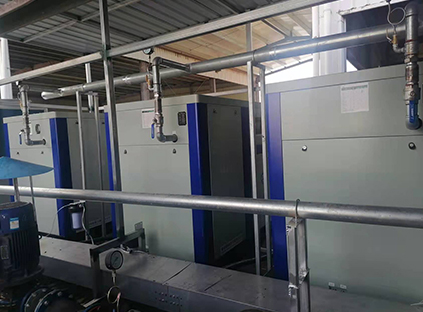might find yourself tasked with selecting an water lubricated screw air compressor for a specific project or industry. While this may initially seem daunting, understanding the key factors involved in selecting the right compressor can help you make an informed decision.

1. Define Your Needs:
Before diving into the selection process, it's important to define your specific requirements. Consider the intended application, air quality standards, required pressure, and flow rate. Additionally, assess the environmental conditions and noise limitations in the operating area. These factors will influence the type and size of the compressor you need.
2. Evaluate Performance and Efficiency:
Oil-free screw compressors vary in performance and efficiency. Look for compressors with high volumetric efficiency, which indicates their ability to convert motor power into compressed air efficiently. Consider the compressor's specific power, which relates to its energy consumption per unit of compressed air output. Opting for a compressor with a higher specific power may lead to increased energy costs in the long run.
3. Assess Reliability and Maintenance:
Reliability is crucial for any compressor. Look for a reputable manufacturer with a proven track record of producing reliable and durable machines. Consider the maintenance requirements of the compressor, including routine servicing and potential downtime. Choose a compressor with easily accessible and replaceable parts to minimize maintenance costs and downtime.
4. Consider Air Quality:
Oil-free screw compressors are specifically designed to provide high-quality, contaminant-free compressed air. However, different industries have varying air quality requirements. Evaluate the filtration system and ensure it meets the necessary standards for your application, such as ISO 8573-1. Additionally, consider any specific air treatment requirements, such as drying or filtration, based on the intended use of the compressed air.
5. Size and Space Constraints:
Evaluate the physical dimensions of the compressor and ensure it fits within the available space. Consider the ventilation requirements and ensure adequate airflow to prevent overheating. Additionally, assess the noise level produced by the compressor and consider any restrictions or regulations in your operating area.
6. Cost Analysis:
Finally, evaluate the total cost of ownership, including the initial purchase price, energy consumption, maintenance costs, and potential lifespan of the compressor. While it may be tempting to opt for a cheaper model, consider the long-term costs and benefits to ensure a cost-effective investment.
Conclusion:
Selecting the right oil-free screw compressor requires careful consideration of various factors, including your specific needs, performance and efficiency, reliability and maintenance, air quality requirements, space constraints, and cost analysis. By following this guide, English majors can make an informed decision and choose a compressor that suits their unique requirements, ensuring efficient and reliable compressed air supply for their projects.